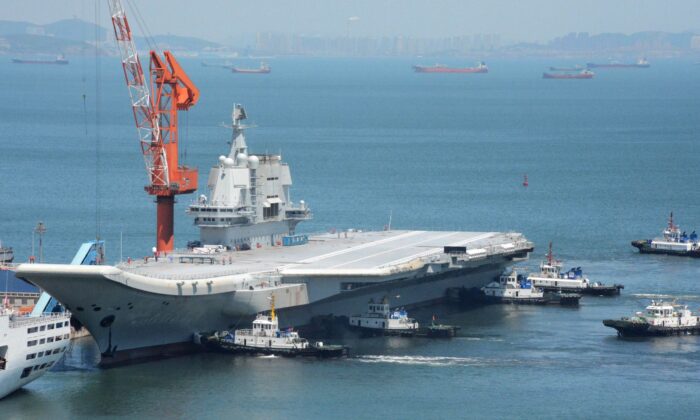Commentary
In recent weeks, China has increased its naval presence in various waters, both nearby and far away.
James Fanell, a former U.S. Navy captain and co-author of “Embracing Communist China: America’s Greatest Strategic Failure,” emphasized China’s assertiveness in the Indo-Pacific region.
Xi Jinping’s economic policies reflect a focus on war preparation rather than consumer empowerment, contributing to economic challenges in China.
Xi Jinping’s actions and statements suggest a readiness for conflict, possibly to maintain his grip on power within the Chinese leadership.
Xi is not aiming to incite the Chinese people through provocative actions or attacks; instead, his goal is to neutralize his political opponents within the Communist Party.
According to Burton, a former Canadian diplomat in Beijing, if the upcoming Communist Party Third Plenum fails to implement significant measures to regain trust in the Party’s ability to bring about positive change, Xi may resort to drastic measures to avoid being ousted from his position. This could involve putting China on a nationalist war footing and taking aggressive action against Taiwan or another neighboring country.
Drawing inspiration from Mao Zedong, Xi could use the tactic of rallying the Chinese people for a quick seizure of territory or to maintain high regional tensions, similar to how Mao used the Cultural Revolution to eliminate senior leaders who were plotting against him.
The situation has the potential to escalate uncontrollably, leading to conflict in the region or even globally. If Xi becomes desperate and the situation continues to deteriorate, he may disregard the risks involved.
While Xi may not have made a definite decision to go to war, he has shown a willingness to take that risk. This means that he could launch a strike when it is least expected.
Please note that the views expressed in this article are the author’s opinions and may not necessarily reflect the views of The Epoch Times.
Source link






